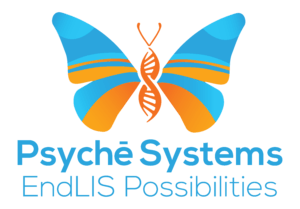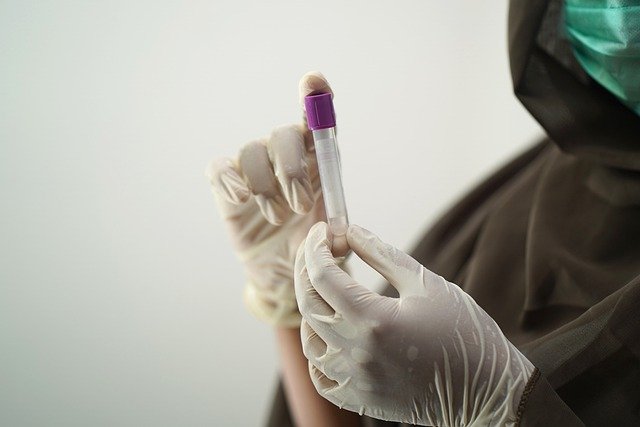In today’s world, genetic testing is becoming increasingly prevalent every day. With the advent of new technologies, cutting-edge software, and dedicated research teams, genetic testing can now aid modern diagnostic laboratories faster. In fact, it’s not uncommon for genetics testing to be the focus of a local laboratory for a medical system nearby. Genetics testing has much to offer the medical community and is still in its infancy with room to grow. With even more studies and advancements, genetic testing will continue to be a main facet of the modern diagnostic lab world.
Psychē Medical Laboratory Systems can help with everything your lab needs to get started with genetics testing today! Our comprehensive software enables your lab to successfully launch genetics testing. We have already helped many laboratories across the US get started with affordable testing software. Plus, we offer you the support you need to direct you to helpful resources and we’re here for you when you have important questions. Here are three popular genetics tests you can start implementing into your lab with Psychē Systems today!
Genetics Testing Explained
Your lab might already provide various diagnostic tests. Genetic testing is another kind of lab testing you can integrate into your lab with the right software and training. Genetic tests can be used for many different tests, including screening for diseases and studying early indications of birth defects during pregnancy.
Genetics Testing Reveals Mutations
Genetics testing works by assessing an individual’s DNA and revealing gene mutations or abnormalities. Your DNA is a coded sequence that dictates how your body functions. The human gene structure follows a set pattern and when mutations occur, it can be a sign of a birth defect, physical impairment, mental disability, or disease.
Another way to think of mutations in your genetics is like miswritten instructions for your body’s operations. Sometimes these mutations are not a major cause for concern. Other times, they can be severely crippling or life-threatening. Therefore, genetics testing plays a critical role in helping people live better lives, prevent diseases, and treat illnesses. It can even contribute drastically to new research on life-threatening conditions.
Prenatal and Newborn Screenings
One popular type of genetics testing is both prenatal and newborn screenings. If you are pregnant, genetic tests can reveal possible abnormalities in your baby’s genes, even early in your pregnancy. Common mutations to look out for during pregnancy include Down Syndrome and Trisomy 18 Syndrome. Newer advancements in testing have made it even easier to analyze a mother’s blood and learn about genetic mutations all in one.
Newborn screening is even more accurate for learning the early warning signs of gene mutations. In fact, it’s the most popular form of genetic testing. Currently, all 50 states require newborn screening to some degree. Newborn testing is a wise investment for your lab to consider because parents need to know about possible harmful abnormalities in their child’s life early on. Doctors can use newborn genetic testing to reveal possible disorders. Disorders might include hypothyroidism, sickle cell disease, and even heart-related conditions. Catching these abnormalities early can help with prevention, management, and cures which can prolong lives.
Diagnostic Testing for Cystic Fibrosis and Huntington’s Disease
Diagnostic genetic testing can be used to screen for common diseases like cystic fibrosis and Huntington’s disease. In the lab world, these tests have become simple to perform, requiring little time and quick results. If you suspect you have symptoms of a common disease, the best way to find out is through reliable genetic testing. Furthermore, you might need genetics testing if you are planning on becoming pregnant, since you can pass on some diseases to your children.

Pharmacogenetics Genetics Testing Can Help Patients Heal
Finally, you can implement genetic testing to help patients heal by pairing them with the right medication. This diagnostic testing is known as pharmacogenetics testing. Here’s how it works.
First, a patient has a particular health condition which will require medication. In these cases, the patient is already aware of the condition and has likely been suffering from it for an extended period or their entire life. Often, doctors use pharmacogenetic testing to manage long-term chronic conditions without cures. However, you can also implement it for any type of disease or condition requiring pharmaceuticals.
Second, their medical provider might be struggling to help prescribe the right medicine for their needs. Pharmacogenetics testing can help determine which medication(s) and proper dosages to regulate, prevent, and monitor the patient’s health conditions.
Learn More with Psychē Medical Laboratory Software
Psychē Medical Laboratory Software can help your diagnostic lab with genetics testing software. We are one of the nation’s leading medical software companies. As a result, we serve labs, hospitals, and clinics across the US. We can help diagnostic labs of all sizes, from small startups to larger corporations. Give us a call today at 508-422-0157 or visit our website to learn more today!

